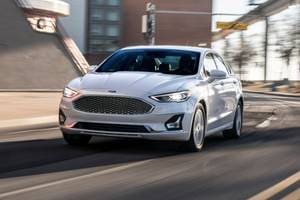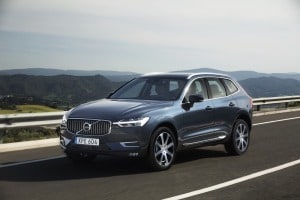Refuting Common Arguments Of Higher CAFE Advocates

I have been having many discussions with people about Corporate Average Fuel Economy (CAFE), including when I was in Washington last week. What I have found when discussing the issue with proponents of higher mandated fuel-economy standards is the underlying belief that automakers must be forced to produce more fuel-efficient vehicles. Recent comments from Dan Becker, the director of the policy group Safe Climate Campaign and reported by HybridCars.com are typical.
 Apparently Mr. Becker feels that the industry drove itself into bankruptcy pushing SUVs and inefficient vehicles. He questions whether automakers are really in touch with what consumers will buy. “You know, the auto industry never learns a new trick,” Mr. Becker is quoted as saying. “The technology that is in the hybrid vehicle is something American people love. They love high-tech products. They don't want a 1950s engine in a 2010 or 2011 vehicle. And there are costs to improving the technology. They're real. But they are made for up to two or three times by savings at the pump.”
Apparently Mr. Becker feels that the industry drove itself into bankruptcy pushing SUVs and inefficient vehicles. He questions whether automakers are really in touch with what consumers will buy. “You know, the auto industry never learns a new trick,” Mr. Becker is quoted as saying. “The technology that is in the hybrid vehicle is something American people love. They love high-tech products. They don't want a 1950s engine in a 2010 or 2011 vehicle. And there are costs to improving the technology. They're real. But they are made for up to two or three times by savings at the pump.”
Wow. First, let me point out that while I am using Mr. Becker's comments as examples, back in Washington variations on these themes are repeated endlessly. So let's break these arguments down. Let's start with Becker's notion that the industry -- shall we assume that by industry he means General Motors and Chrysler -- drove itself into bankruptcy by “pushing” SUVs. He seems to have forgotten that GM and Chrysler actually made lots of money selling these very same vehicles. The key issue is the idea that car companies can push vehicles on consumers. Car company marketers no doubt wish this were true.
This explains the argument that car companies must be forced to offer more fuel-efficient vehicles. Without higher CAFE, car companies will keep tricking consumers into buying larger vehicles when what consumers really want are smaller, higher mileage vehicles. Car companies, of course, do this because that is where the money is. Seems to me that this notion ignores a fundamental understanding of how the market operates.Car companies make lots of money selling larger vehicles, including SUVs, because that is what consumers want. Not in spite of it.In fact, as I have pointed out in earlier columns, car companies were led into the SUV market by consumers who were frustrated by the downsized vehicles offered in showrooms during the 1980s. I hate to point this out, but if there is a “villain” here, it is the consumer, not the car companies.
A second point that Mr. Becker makes is that American's love hybrid vehicles. I am not exactly sure what he is trying to say. It is likely that owners of hybrid vehicles love their vehicles. But if he really means that Americans love hybrids, well they have a funny way of showing it, meaning they aren't buying them. Yes, there is the Toyota Prius (top), which for many is not a hybrid, it the hybrid. By this I mean that they have a passion for the technology or for the statement that driving a Prius makes. No other vehicle will do, for this group. This is a nice niche for Toyota, but it is just a niche. In a market of around 12-million vehicles of total sales a year, the Prius only sells around 150,000 vehicles — and that's the best-selling hybrid on the market.
A more interesting analysis is to look at the sales rate the car companies achieve when a hybrid powertrain is offered alongside a standard gasoline powertrain. A relative success story is the Ford Fusion Hybrid. Last year, the Fusion Hybrid take rate cracked 10 percent of total Fusion sales. That is the best it gets, unless you consider Lincoln's MKZ Hybrid, based on the Ford Fusion Hybrid. The hybrid take rate on the MKZ hovers at around 20 percent of total MKZ sales, albeit volumes for both models are small in the scheme of things. The higher take rate is due to the fact that Lincoln charges the same for the MKZ Hybrid as it does the MKZ with a V6 gasoline engine.

For another example, let's look at the Nissan Altima. The take rate for the hybrid version of the Altima, which was only available in nine states for the 2011 model year, is under 5 percent. Nissan quietly dropped the hybrid Altima from its 2012 line-up.

Even Toyota has trouble selling non-Prius hybrids. Look at sales of the Toyota Camry Hybrid. And in the spirit of full disclosure, I have to point out that these figures include not only retail but also fleet sales.For most hybrids, sales have been lower than the manufacturers would like. As a result they have been selling a high percentage of production into fleet sales. In other words, sales to consumers are even worse than the numbers shown.

Incidentally, GM, perhaps in response to its critics, has offered a hybrid version of its Chevrolet Silverado full-size pickup truck since February of 2009. Since then, GM has sold a total of 3,495 Silverado hybrids -- a whopping 0.48 percent of total Silverado sales during that period of time.

So what about Mr. Becker's claim that the premium consumers pay for a hybrid is made up two to three times over at the service station pump? Take the 2011 Nissan Altima Hybrid as an example. The sticker of the Altima started at around $23,000 and a similarly equipped Altima Hybrid at $26,800. At an average gas price of $3.51 and 15,000 city miles each year, it would take the owner nearly nine years to break even. So Mr. Becker must assume that owners will keep their Nissan Altima for 18 to 27 years. Sound reasonable to you? And many other hybrids are worse than the Altima in terms of payback. The better bet is the new Camry Hybrid, but breakeven still is at six-plus years.
One final quibble regarding Mr. Becker's comment that American people love high-tech products and not 1950s engines in their new vehicles. According to Wikipedia, Ferdinand Porsche developed the first gas-electric hybrid in 1900. Clearly, both the hybrid and conventional internal combustion engines have come a long way since their inventions. Unfortunately, Mr. Becker's comments are typical of the quality of the debate I found during my trip to Washington. Perhaps it is not a surprise, but it is disturbing nonetheless.
Jeremy Anwyl: Vice Chairman of Edmunds.com. Follow @JeremyAnwyl on Twitter.





